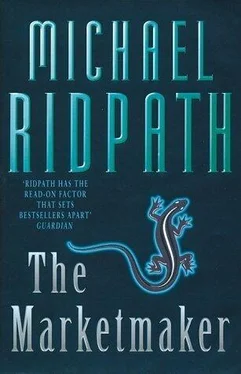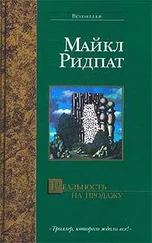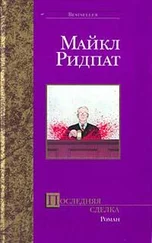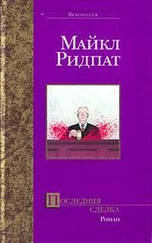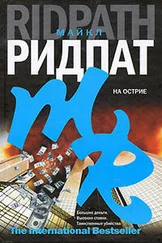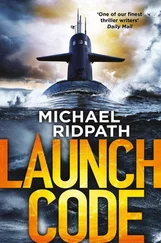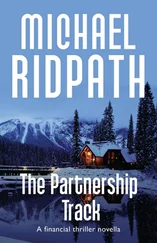‘I don’t know about that. I’m Brazilian. I know all about flirting. I can tell when a guy is just having fun, and when he really means it. And, believe me, your friend Jamie really means it.’
I looked at her sharply. She must be mistaken. ‘No. He always used to chat up women. He just wants to make sure he can still do it, that’s all.’
‘Nick, I think he wants to prove that he can do more than just chat them up.’
I shook my head. ‘I’m sure you’re wrong.’
‘OK. He’s your friend. You know him best. I’m just glad I’m not his wife.’
Despite my protests, Isabel had planted some seeds of doubt. I hadn’t been able to understand what Jamie had against her when he had warned me about her. Had he tried his luck and been rejected? It did fit. But Jamie was a good friend, and so was Kate, and I just didn’t want to think that there was any infidelity there. If that meant I had to bury my head in the sand, so be it.
Isabel could see my doubt and irritation. She put her hand on mine. ‘I’m sorry, I shouldn’t have told you that. It’s just that after Marcelo, and um—’ She broke off. ‘After Marcelo, I’m not very impressed with unfaithful men. I probably judged Jamie too quickly. Please forgive me.’
That wasn’t difficult. ‘I forgive you.’
And so our conversation eased gently into the night.
Some time after midnight we spilled out of the restaurant, and headed for the sea, only a couple of blocks away. We crossed the road, pushed our way through the throng of people along the pathway, and headed down to the water itself. The beach was floodlit, and a game of foot volleyball was in full swing. The skills of the players amazed me, rally after rally of three touches, with head, chest or feet.
We walked all the way down to the water, watching the foam beat rhythmically on to the sand, the flecks of salt water picked out brilliant white by the floodlights. We took off our shoes and padded along the strip of wet sand at the water’s edge, letting the strongest, most adventurous waves wash over our toes. On one side was the dark sea, on the other the life and lights of Ipanema. We didn’t speak. The beauty of the night hung around us. I wanted to walk for ever with Isabel along that beach.
We were approaching the favela I had seen tumbling down into the sea the day before, a mass of pinpricks of individual electric lights. It was quieter and darker at this end of the beach, down by the shore.
Suddenly we were surrounded by figures, small, thin and lithe. I don’t know where they came from. There were four of them, I think. Instinctively, I tried to move in front of Isabel, but I was stopped by a long thin knife, an inch from my chest.
I glanced at Isabel. She was standing still. ‘Don’t move!’ she said, in a voice of surprising calmness. ‘Give them what they want.’
A kid of about fourteen waved his blade in front of me, and said something in Portuguese.
‘OK, OK,’ I said. Slowly, I reached into my trouser pocket, and produced some notes. It was a healthy bundle. Fortunately I had left my wallet at the hotel, with my passport, as Isabel had suggested.
The kid snatched the money. Isabel was carrying a cheap shoulder bag, and she slowly handed that over.
I began to relax. They’d got their money. Now they’d let us go.
The kid in front of me tucked the notes into his pocket, keeping his eyes on me all the time. He didn’t move, standing there, still. He was half my age, much smaller than me, but he had a knife, and he certainly knew how to use it.
I sought his brown eyes with mine, but they flicked away. Then his thin shoulders tensed. I knew what he was going to do. I started to turn, but I was too late. The knife flashed, and I felt a hot piercing pain in my chest. Isabel screamed. My hands flew to the hilt of the knife. The kid tried to pull it out, but I clung on to it, determined not to let the blade leave my body. My chest was on fire. It hurt to breathe, but I kept trying, short gasps, each one agony. My legs buckled underneath me, and I sank to the ground, pulling the knife and the kid with me. He yanked a couple of times, and then gave up, letting me slip down to the sand.
‘Nick! Nick...’ Isabel’s voice faded into darkness.
I had my own room in the hospital, and it was clean. Isabel had made sure of that. She had secured a well-qualified doctor who had pronounced that the knife wound, although deep, wasn’t dangerous. It had missed my heart, but nicked my lung. There had been some internal bleeding, but this had been minimized because the knife had not been withdrawn. The lung itself had not been badly damaged, and would heal quickly. He had stitched me up carefully, so the scarring would be minimal. Rio doctors were, apparently, experts with a needle and thread. I had woken up with a tube down my throat, which they soon took away, but my breathing was still painful. The doctor wanted to keep me in hospital for a couple of days to make sure no infection took hold, and to give me time to recover from the shock of the attack.
I needed it. There was a steady, dull, persistent pain in my chest, but that wasn’t the problem. I felt weak and my brain was fuzzy. My body was telling me to lie still.
Isabel was in and out all the time. I got the impression she was organizing everything in the background. A plain-clothes policeman came to see me. Isabel translated. She had obviously already given him all the information she could, and there was nothing I could add. She said that the police were particularly tough on locals who attacked foreigners: it was bad for the tourist trade. Someone would suffer for this crime. Whether it would necessarily be the kids who had committed it might never be known. The Rio police’s justice was arbitrary.
Her father also came to see me. He said he felt guilty that this had happened to me in Rio, his city. It was comforting to know that Isabel and Luís were looking after me. The thought of dealing with the Rio police and medical system alone, wounded, and speaking no Portuguese, scared me.
Ricardo called me on Sunday evening to wish me well. He said I was lucky to be in Isabel’s hands. I agreed with him.
They let me out of hospital at lunch-time on Monday, on condition that I spent the afternoon at the hotel. I was beginning to feel much stronger. Isabel suggested I stay at the hotel on Tuesday and fly home that evening, but I asked her if I could join her at the Ministry of Finance. The deal was nearly finalized, and since I had come all this way, I wanted to see it through. Or so I told her. More than that, I had enjoyed having Isabel around, and I wanted to prolong the experience as long as possible.
We were supposed to be meeting Humberto Alves at nine thirty on Tuesday morning, and we arrived ten minutes early. By eleven he still hadn’t seen us. Isabel was becoming agitated.
‘Half an hour late is OK. It’s normal. But an hour and a half? I don’t know. Something’s wrong.’
And it was.
Eventually Humberto called us into his office. He bade us sit down, and began to pace up and down. He fussed over me, which was fair enough, but he took much longer than necessary.
‘Humberto. What’s wrong?’ said Isabel in the end, in frustration.
He ran his hand through the remnants of his hair, and glanced at Isabel nervously. ‘We’ve decided to appoint Bloomfield Weiss as lead-manager of the favela deal. We’ve asked them to invite you into the deal as a co-lead-manager, and they’ve agreed.’
‘You’ve what?’ shouted Isabel, leaping to her feet.
Humberto edged round behind his desk, and glanced down at its sparkling top. ‘We’ve asked Bloomfield Weiss to lead-manage the deal.’
Isabel shouted at him in a stream of Portuguese. He tried to answer, but it was no good. Eventually he sighed. He glanced at me. ‘OK,’ he said, in English. ‘You deserve an explanation.’
Читать дальше
